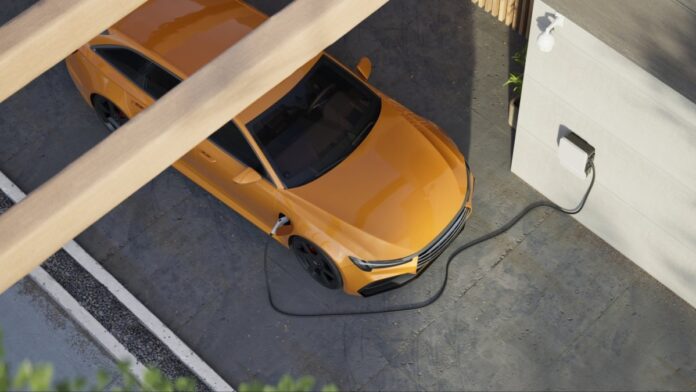The fact that electric cars are less harmful to the environment than conventional cars is as little disputed as the fact that their production releases more greenhouse gas than that of a conventional car and that the climate-friendly effect occurs during their use. A recent study by the Fraunhofer Institute for Systems and Innovation Research (ISI) in Karlsruhe shows that electric cars are now also financially viable. The review of the environmental impact of electric cars summarizes the results of more than 70 analyses and other scientific sources.
The meta-study from Karlsruhe is comparable to a review from 2020 in terms of its questions and methodology, and is therefore a kind of “update”. It shows a development in the field of battery technology that has a clearly positive effect on the electric car. Over its life cycle, a mid-range electric car with normal use and average mileage emits around 40 to 50 percent less greenhouse gas emissions than a comparably sized conventional car. Depending on the vehicle size and energy source, greenhouse gas emissions are typically 60 to 130 percent higher during production. However, this burden is gradually removed during the operation of an e-car, from production to scrapping.
Electric cars are almost always pricier to buy than comparable conventional cars. Overall, however, the cost balance does not look the same for every user. An electric car can already be cheaper today. According to the study, an electric car can typically pay for itself after just three years of ownership if you have access to charging facilities at home or at work. The cost per kilometer for a mid-range electric car with average mileage is already in the range of a conventional car of a similar size.
According to the authors, acceptance should also be boosted by developments in the battery sector, which now enable charging windows in the range of 10 to 20 minutes, ranges of around 400 km and lifetimes of at least 15 years. The battery sizes are already perfectly adequate for the profile common to most users in everyday life. Added to this is the trend towards lower raw material prices for battery production. The authors see further positive impetus from the trends towards controlled and bidirectional charging, as well as the falling prices for electric vehicles. The study also recommends state subsidies for a transitional period.
It remains to be added that the environmental impact of electric car traffic is automatically reduced to a certain extent, irrespective of advances in battery or production technology and the age of the electric car. Every electric car produced benefits increasingly from the effect of the steadily increasing proportion of electricity generated from renewables during its service life. This makes electric cars important for the targets set by the Climate Protection Act. It aims to reduce Germany’s CO2 emissions by at least 65 percent by 2030 and by at least 88 percent by 2040 compared to 1990 levels to achieve greenhouse gas neutrality by 2045.
(fpi)
Don’t miss any news – follow us on
Facebook,
LinkedIn or
Mastodon.
This article was originally published in
German.
It was translated with technical assistance and editorially reviewed before publication.


